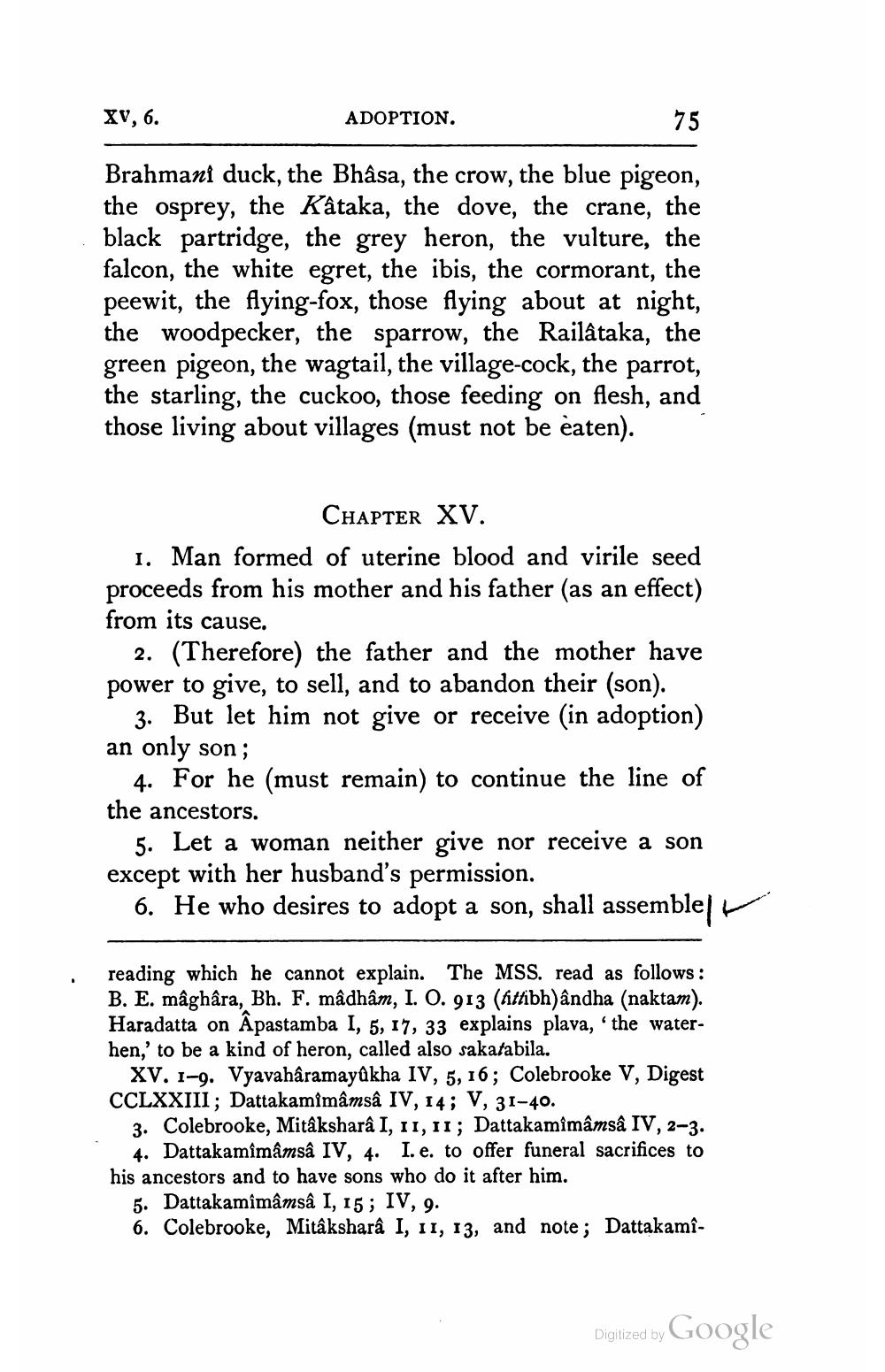________________
XV, 6.
ADOPTION.
75
Brahmani duck, the Bhâsa, the crow, the blue pigeon, the osprey, the Kâtaka, the dove, the crane, the black partridge, the grey heron, the vulture, the falcon, the white egret, the ibis, the cormorant, the peewit, the flying-fox, those flying about at night, the woodpecker, the sparrow, the Railâtaka, the green pigeon, the wagtail, the village-cock, the parrot, the starling, the cuckoo, those feeding on flesh, and those living about villages (must not be eaten).
CHAPTER XV. 1. Man formed of uterine blood and virile seed proceeds from his mother and his father (as an effect) from its cause.
2. (Therefore) the father and the mother have power to give, to sell, and to abandon their (son).
3. But let him not give or receive (in adoption) an only son;
4. For he (must remain) to continue the line of the ancestors.
5. Let a woman neither give nor receive a son except with her husband's permission.
6. He who desires to adopt a son, shall assemblel
reading which he cannot explain. The MSS. read as follows: B. E. mâghara, Bh. F. madhâm, I. O. 913 (Attibh)ândha (naktam). Haradatta on Âpastamba I, 5, 17, 33 explains plava, the waterhen,' to be a kind of heron, called also sakatabila.
XV. 1-9. Vyavahâramayûkha IV, 5, 16; Colebrooke V, Digest CCLXXIII; Dattakamimâmsâ IV, 14; V, 31-40.
3. Colebrooke, Mitâksharâ I, II, II; Dattakamimâmsa IV, 2-3.
4. Dattakamimamsa IV, 4. I. e. to offer funeral sacrifices to his ancestors and to have sons who do it after him.
5. Dattakamîmâmsâ I, 15; IV, 9. 6. Colebrooke, Mitâksharâ I, 11, 13, and note; Dattakami
Digitized by Google




